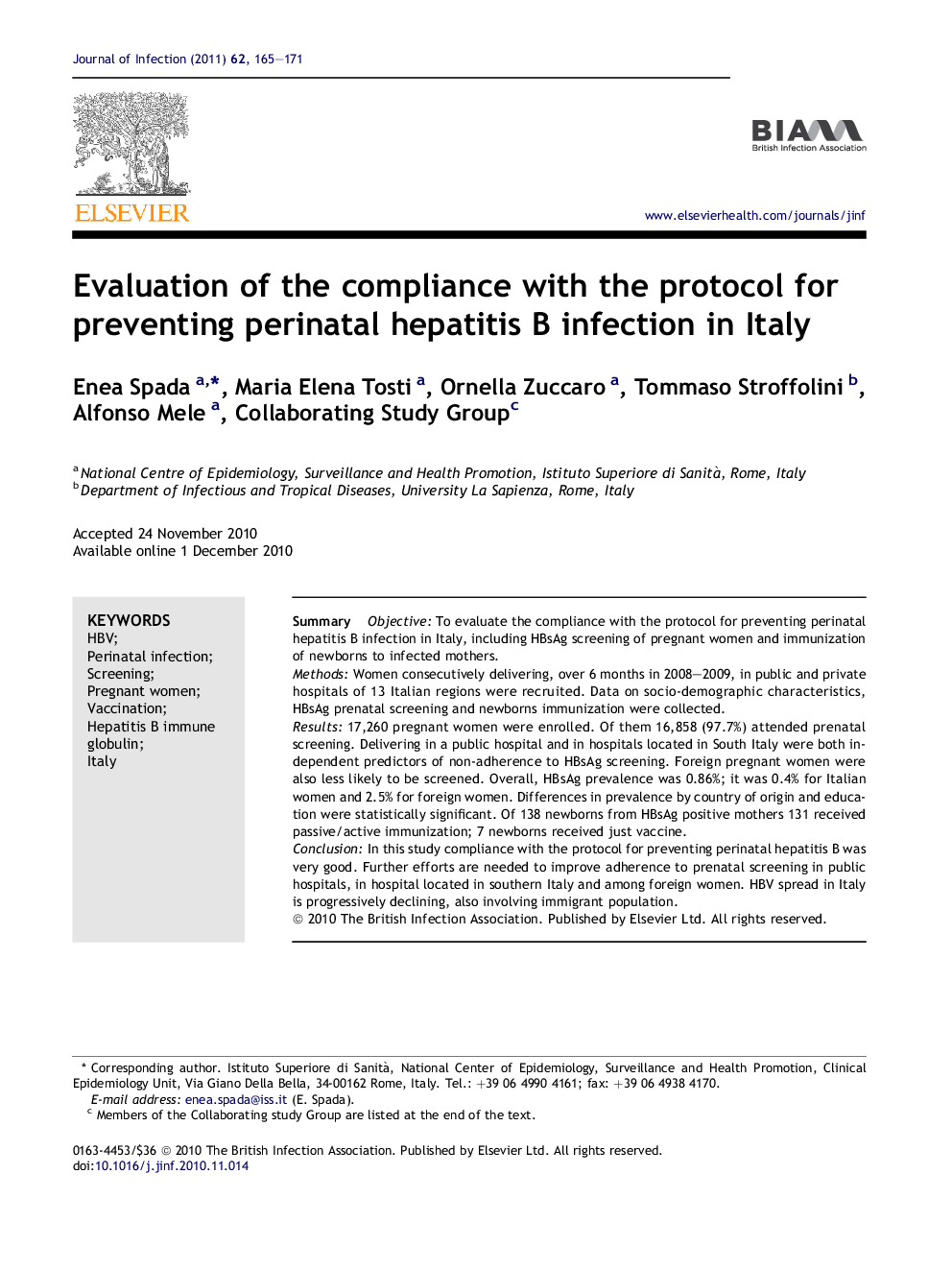| Article ID | Journal | Published Year | Pages | File Type |
|---|---|---|---|---|
| 3375437 | Journal of Infection | 2011 | 7 Pages |
SummaryObjectiveTo evaluate the compliance with the protocol for preventing perinatal hepatitis B infection in Italy, including HBsAg screening of pregnant women and immunization of newborns to infected mothers.MethodsWomen consecutively delivering, over 6 months in 2008–2009, in public and private hospitals of 13 Italian regions were recruited. Data on socio-demographic characteristics, HBsAg prenatal screening and newborns immunization were collected.Results17,260 pregnant women were enrolled. Of them 16,858 (97.7%) attended prenatal screening. Delivering in a public hospital and in hospitals located in South Italy were both independent predictors of non-adherence to HBsAg screening. Foreign pregnant women were also less likely to be screened. Overall, HBsAg prevalence was 0.86%; it was 0.4% for Italian women and 2.5% for foreign women. Differences in prevalence by country of origin and education were statistically significant. Of 138 newborns from HBsAg positive mothers 131 received passive/active immunization; 7 newborns received just vaccine.ConclusionIn this study compliance with the protocol for preventing perinatal hepatitis B was very good. Further efforts are needed to improve adherence to prenatal screening in public hospitals, in hospital located in southern Italy and among foreign women. HBV spread in Italy is progressively declining, also involving immigrant population.
